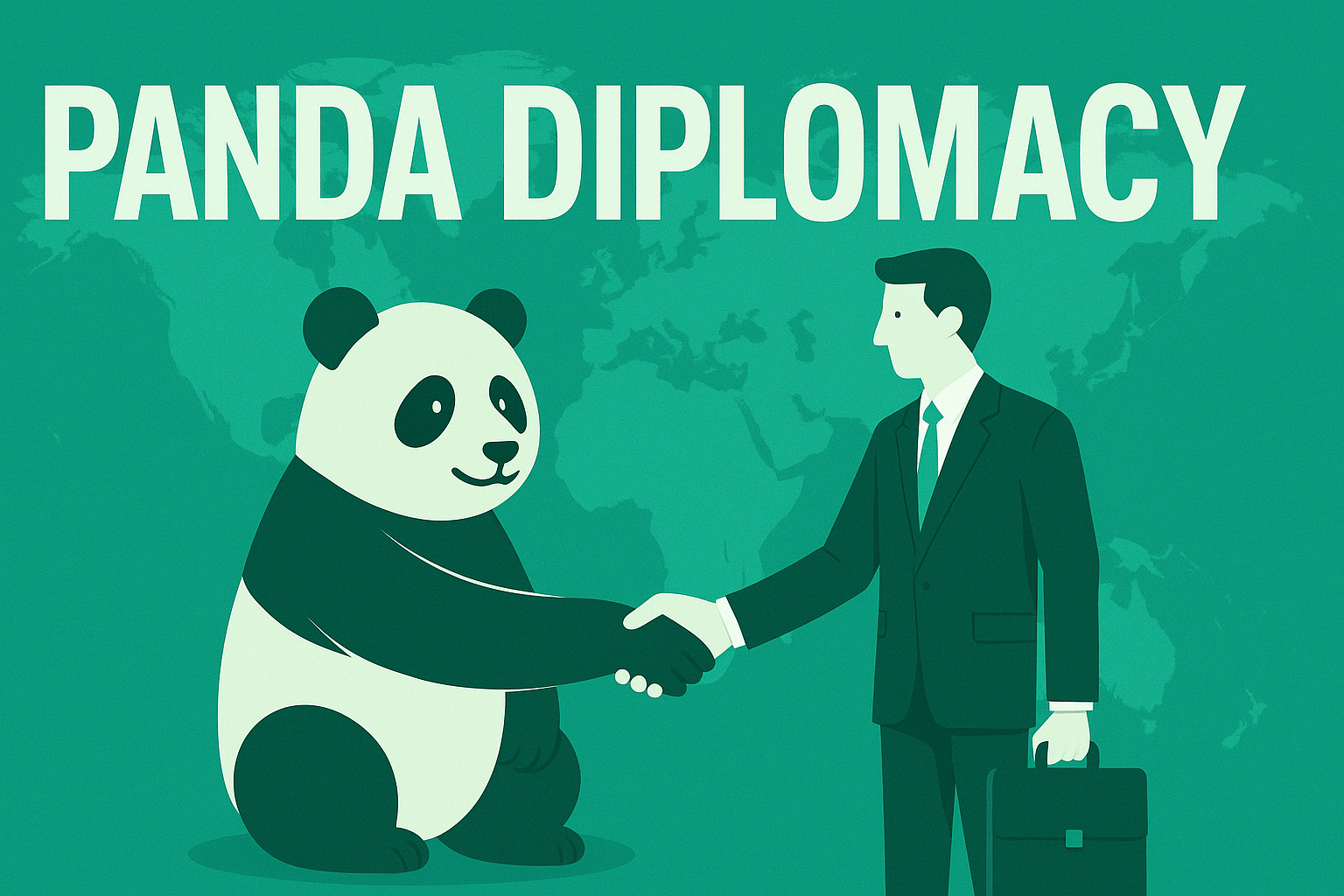The Geopolitical Impact of China’s “Soft Power Mascot”
By: Visiting Fellow, East Asia Strategy Research Institute
Introduction: Pandas as Instruments of Diplomacy
The giant panda is not merely a species native to China; it is a state-owned diplomatic asset—an embodiment of soft power and a tool of strategic communication. This report analyzes the effectiveness of “panda diplomacy” using the framework of international political science, focusing on its symbolic, societal, and geopolitical impact.
Structural Overview: Panda Diplomacy as Tangible Soft Power
Definition
Panda diplomacy refers to the Chinese government’s practice of loaning or gifting giant pandas to selected foreign countries as a means of strengthening bilateral relations and projecting soft power.
Criteria for Recipient Countries
Recipient nations are typically strategic partners—either economically, politically, or regionally—where China seeks to build long-term influence or stabilize ties.
Analyzing the Effects of Panda Diplomacy: A Three-Level Approach
Impact on Interstate Relations (Government-to-Government)
| Area | Description | Example |
|---|---|---|
| Symbol of Goodwill | The arrival of pandas is framed as a gesture of trust and friendship | 1972 panda gift to Japan following normalization of diplomatic ties |
| Platform for High-Level Dialogue | Renewals and breeding negotiations open space for official talks | 2011 panda re-loan agreement between China and Japan |
| Diplomatic De-escalation | Pandas often remain a neutral bridge during periods of tension | U.S.-China panda loans continued even during trade disputes |
Social and Cultural Influence (Public Sentiment)
- Improving Public Perception of China
Pandas are emotionally disarming and politically neutral, often softening public attitudes even in states with strained China relations. - Boosting Regional Tourism & Economy
For example, in Wakayama, Japan, panda-related tourism has drawn over 3 million visitors annually, revitalizing local economies. - Facilitating Scientific Collaboration
Breeding programs are often accompanied by academic partnerships and conservation research, promoting long-term engagement.
Geopolitical Messaging and Global Positioning
- A Cultural Counterpart to the Belt and Road Initiative
Panda diplomacy serves as a “non-military influence vector,” shaping international perceptions without coercive means. - Defining China’s Sphere of Influence
Only close or strategically valuable countries receive pandas, subtly conveying who China considers allies or favored partners. - Soft Rivalry with Competing States
For instance, when countries switch diplomatic recognition from Taiwan to China, panda loans often follow as a “reward” signal.
Strategic Limitations and Risks
| Risk | Explanation |
|---|---|
| Perception of Instrumentalization | Critics argue animals should not be used as political tools |
| Legal and Financial Complexity | Loans come with expensive contracts, often exceeding $1 million per year, with strict breeding and return clauses |
| Emotional Fallout from Repatriation | When pandas are returned, public disappointment may spark political criticism (e.g., Japan’s farewell to Xiang Xiang) |
Conclusion: Panda Diplomacy as a “Silent Strategic Communicator”
Panda diplomacy appears gentle, yet its underlying mechanisms are highly strategic. It is a geopolitical instrument that fuses emotion, symbolism, and influence, allowing China to extend its presence without military or economic coercion.
For recipient countries, panda diplomacy functions both as a test of alignment and a platform for calibrated engagement.
Policy Implications for Japan
- From Borrowing Pandas to Strategic Leveraging
→ Integrate panda diplomacy with regional diplomacy, tourism, and technology cooperation. - Using Emotional Diplomacy for Strategic De-escalation
→ Utilize panda-based cultural initiatives as tools for soft conflict prevention and public diplomacy. - Plan for Exit Strategies
→ Prepare for post-loan scenarios to minimize emotional and political fallout during panda repatriation.


